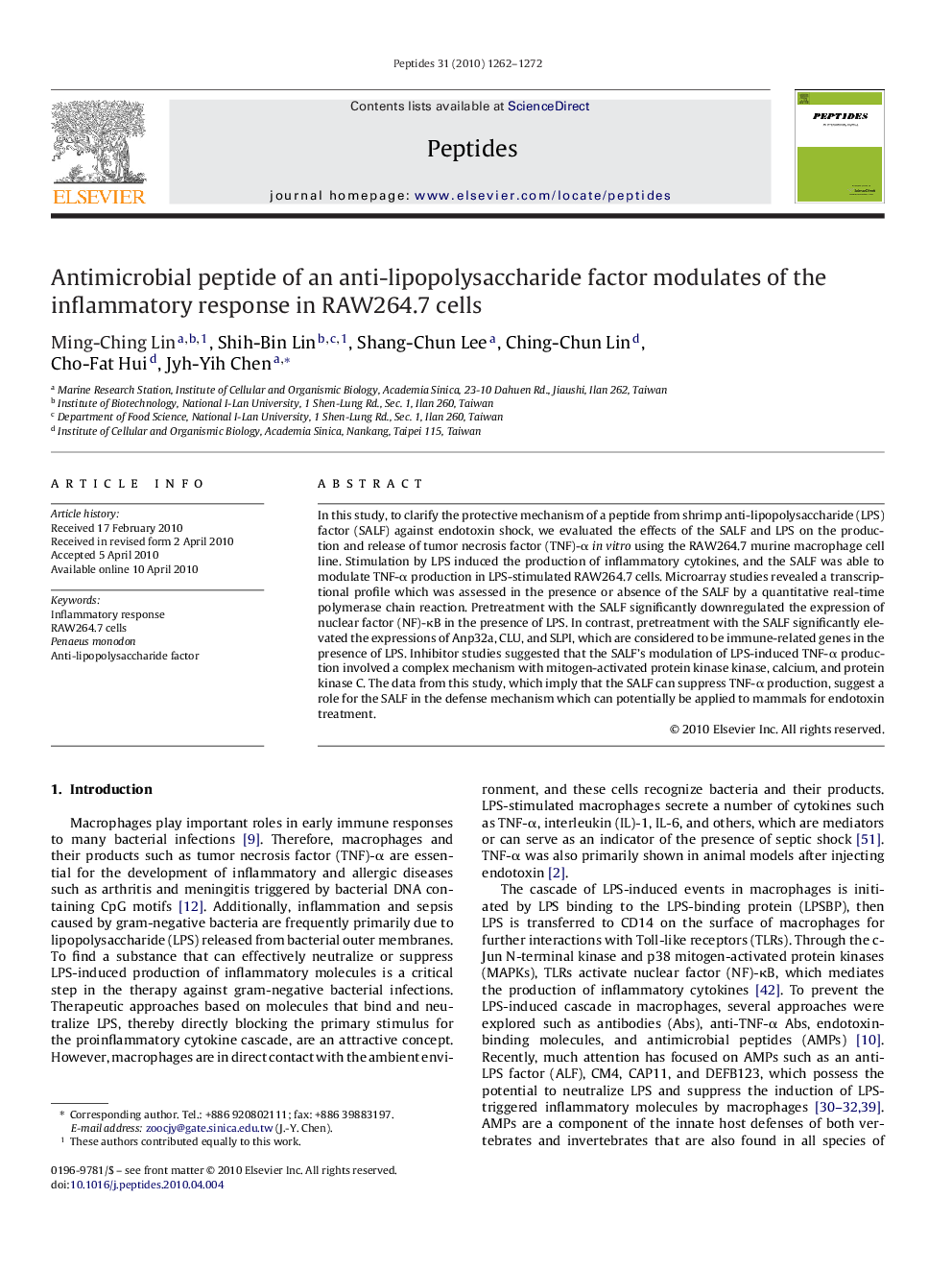| Article ID | Journal | Published Year | Pages | File Type |
|---|---|---|---|---|
| 2006616 | Peptides | 2010 | 11 Pages |
In this study, to clarify the protective mechanism of a peptide from shrimp anti-lipopolysaccharide (LPS) factor (SALF) against endotoxin shock, we evaluated the effects of the SALF and LPS on the production and release of tumor necrosis factor (TNF)-α in vitro using the RAW264.7 murine macrophage cell line. Stimulation by LPS induced the production of inflammatory cytokines, and the SALF was able to modulate TNF-α production in LPS-stimulated RAW264.7 cells. Microarray studies revealed a transcriptional profile which was assessed in the presence or absence of the SALF by a quantitative real-time polymerase chain reaction. Pretreatment with the SALF significantly downregulated the expression of nuclear factor (NF)-κB in the presence of LPS. In contrast, pretreatment with the SALF significantly elevated the expressions of Anp32a, CLU, and SLPI, which are considered to be immune-related genes in the presence of LPS. Inhibitor studies suggested that the SALF's modulation of LPS-induced TNF-α production involved a complex mechanism with mitogen-activated protein kinase kinase, calcium, and protein kinase C. The data from this study, which imply that the SALF can suppress TNF-α production, suggest a role for the SALF in the defense mechanism which can potentially be applied to mammals for endotoxin treatment.
